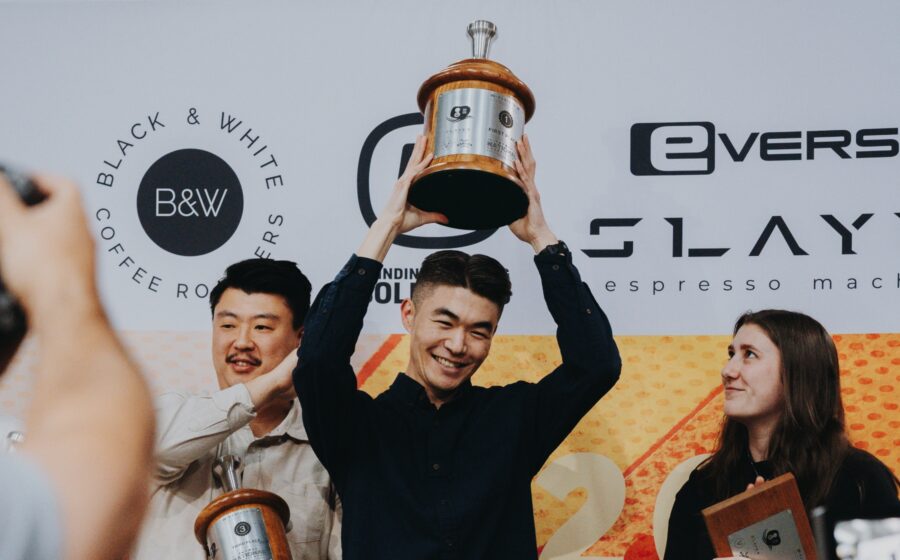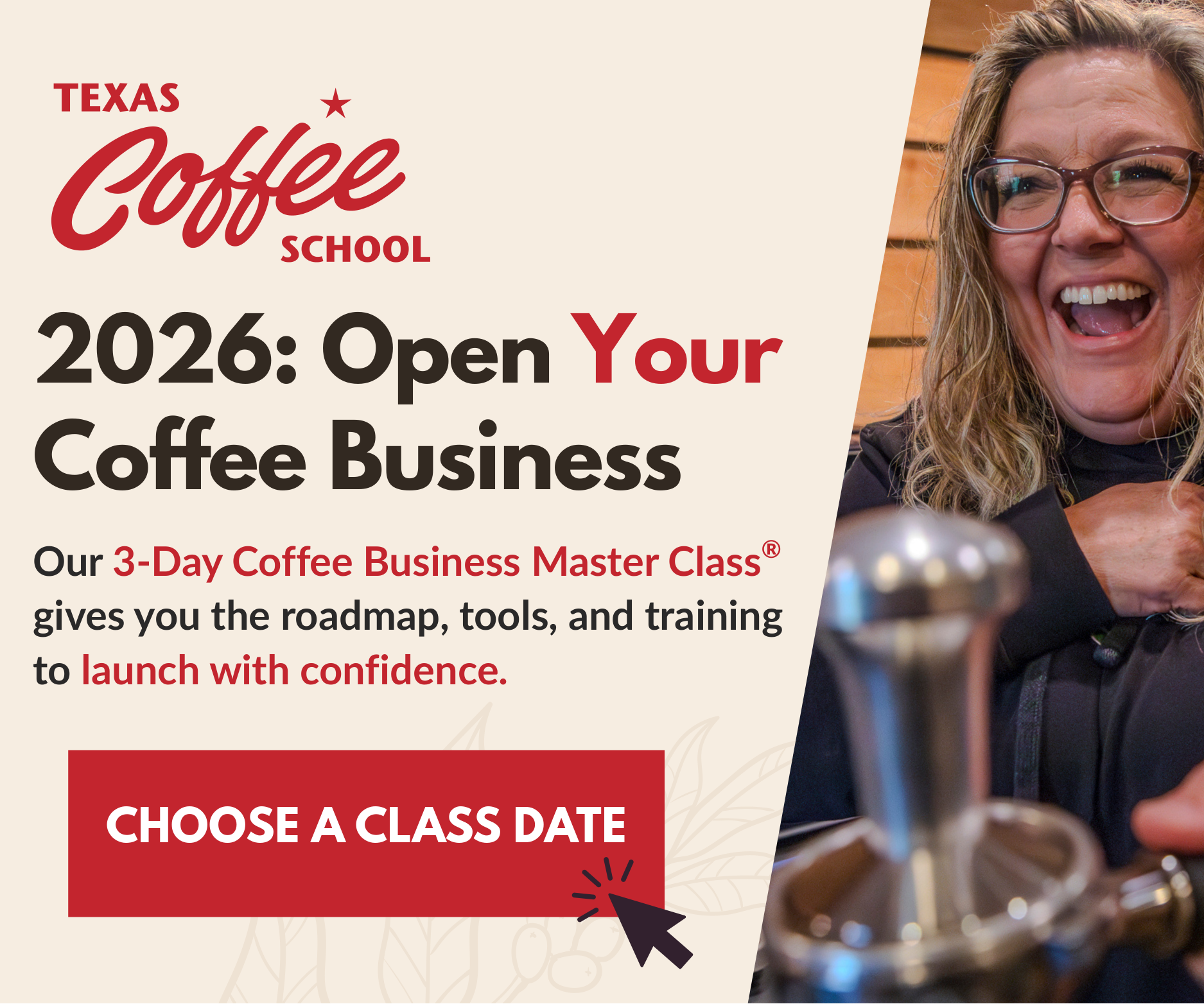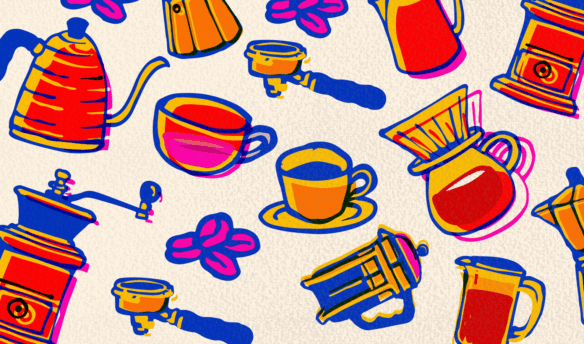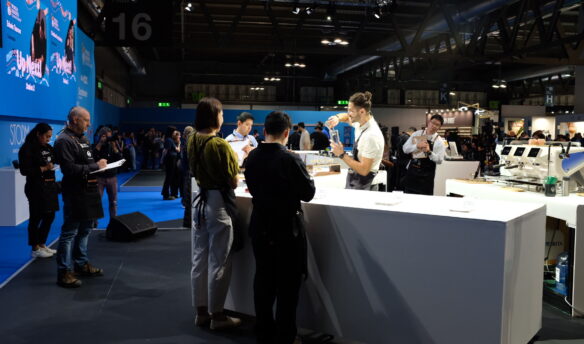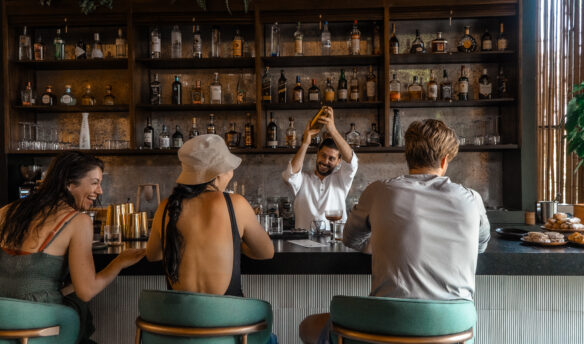Kay Cheon vividly remembers an interaction he had right after winning the 2025 United States Barista Championship, held in March at the Black & White Coffee roasting space in Raleigh, North Carolina.
“Someone had come up to me who was part of another competitor’s team,” says Cheon. “They put their hand on my shoulder and said, ‘Hey, obviously I wanted my competitor to win. But it feels really special when the person that wins is the person that everyone wanted to win.’”
Cheon says the comment made him feel emotional, but it was far from an outlier—instead, it captured how nearly everyone in the coffee industry seems to feel about his victory.
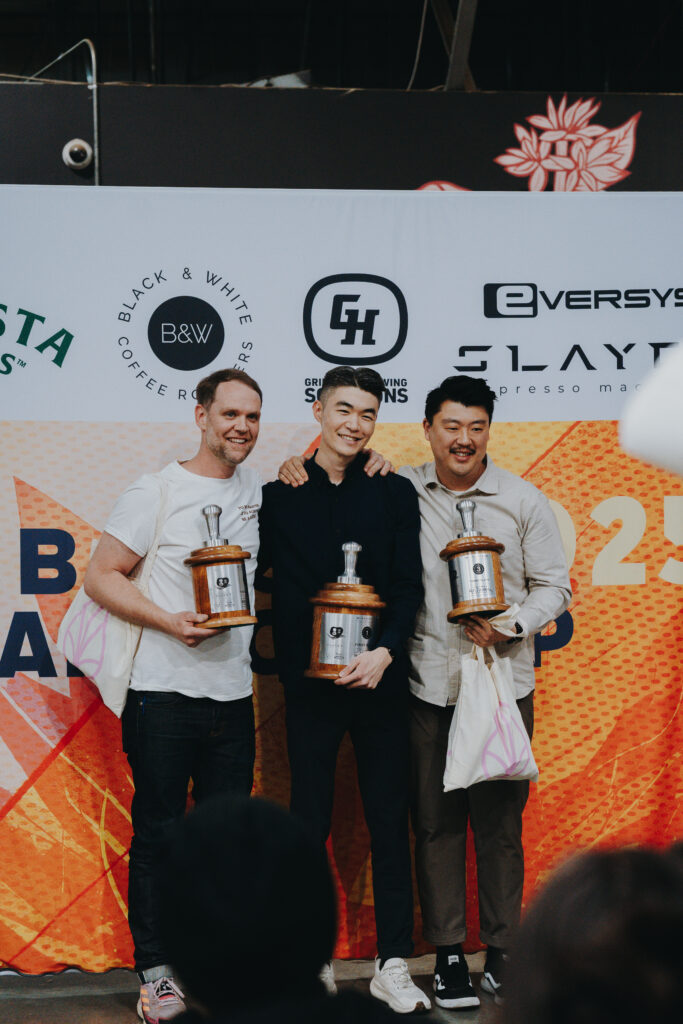
Cheon—who also works as the head of sales and education for Dune Coffee Roasters in Santa Barbara, California—has been competing in barista competitions since 2018. Every year, he’s brought a dedication to growth and education that is unmatched. Of course winning feels good, but for Cheon, the privilege of competing is in learning more about coffee—and himself.
That sentiment makes sense when you consider Cheon’s career. He started working as a barista in 2012 as a way to fuel his interest in coffee; before that, he was simply an enthusiast watching baristas from the sidelines. “It was the fastest way I could push myself to learn more about coffee—I knew I needed to be in the industry,” he says. “It wasn’t just something I could keep learning by being on the internet and making V60s at home.”
Likewise, Cheon started competing as a way to hone his skills and explore beyond his comfort zone. This year, he pushed himself further by roasting his coffee on a Stronghold machine for the first time. He also opted to explore new coffee origins for his competition coffee.In past years, he competed with a coffee from Hacienda La Papaya in Ecuador; this year, he used a variety called Ombligon from Nestor Lasso of Finca El Diviso in Colombia and a Gesha grown by Jamison Savage at Finca Deborah in Panama.
“I had this inclination at the end of 2024 that we are such a strong team, but if we keep doing the same things that we’re always used to doing, it’s hard to expect that we’ll all be able to grow together or that we’ll be able to reach a new level of competition,” he says about those changes.
Cheon is thinking about pivotal moments a lot these days—not only the decision to make big changes to his competition preparation, but also the moments that got him this far in coffee. “I was exposed to specialty coffee in such a way that, for the person doing the sharing, it was most likely not very significant to them,” he says. “I think about how that simple interaction has so dramatically changed the trajectory of my life.”
Fresh Cup spoke to Cheon to learn more about his victory. We also discussed how LEGO helped shape his routine, what it means to compete for the sake of learning, and how he plans to prepare for October’s World Barista Championships in Milan, Italy.
Do you remember the first time you saw a barista competition?
My memory of this is a little hazy, but two people really stuck out to me as the face of competition.
One was Truman Severson of Portola Coffee. They were living up to the mad scientist barista in many ways at the time, with the lab coats and all that. I always thought that it was fun to see something different in coffee, and Portola was my local coffee shop at the time, so I got to speak with Truman over the years.
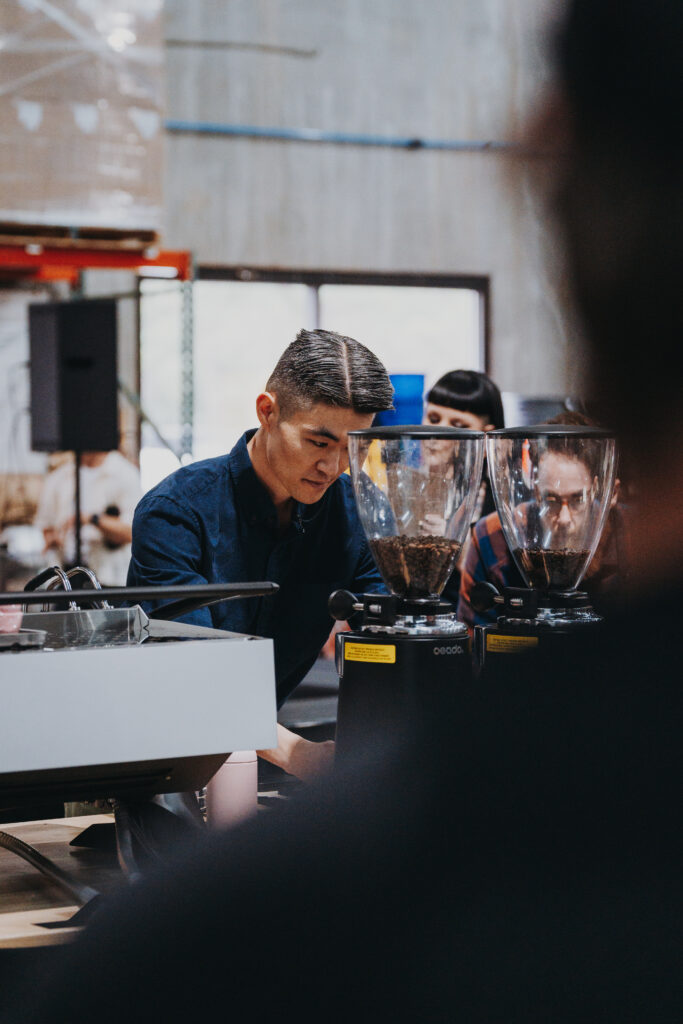
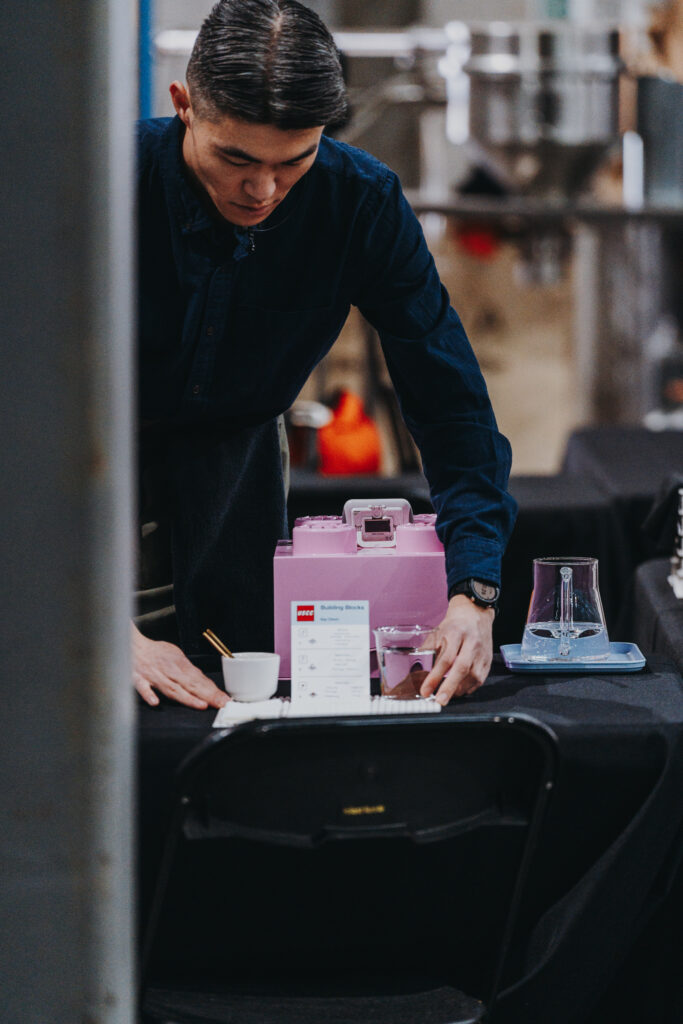
I’ve told Frank this, but the other person was Frank La [the 2024 US Barista Champion], back when he was competing in 2013. I remember having two kinds of thoughts when I learned about barista competitions: first, excitement that this competition existed and that there were people doing things I thought were so unattainable in coffee.
And then, the other thing was how happy I was that someone who looked like me—Frank—was also competing. There was definitely an element at the time for me of feeling like a lot of baristas or people in coffee looked a certain way, and that I didn’t see as many people that looked like me. Seeing someone competing at this high level and representing the industry inspired me and encouraged me a lot.
What was Frank’s reaction when you told him that?
I don’t know. I think about how I would react if someone said that to me. It’s hard to understand that kind of impact. But I’m sure Frank recognized how long he’s been in the industry and how much of an impact he’s had on multiple people—not just me.
You first competed in 2018. What did you learn that year?
I learned a lot about myself. That’s something I value about barista competition: You learn so much about how you like to work, the things you find important, and how you can balance all these different things.
I really enjoyed the preparation—learning and paying attention to so many details about coffee than I ever thought of, and being exposed to different ways of thinking about coffee. I think the other big thing I enjoyed, which has been true since that first year, was working together as a team. As a competitor, you’re doing so much in the background; you’re doing so much with your team when nobody’s looking.
A lot of people, I imagine, compete to win. It’s compelling to hear you talk about what you get out of competition.
It’s been helpful for me to ground myself in why I choose to compete. And have competed for so many years, right? That first year was significant in two ways.
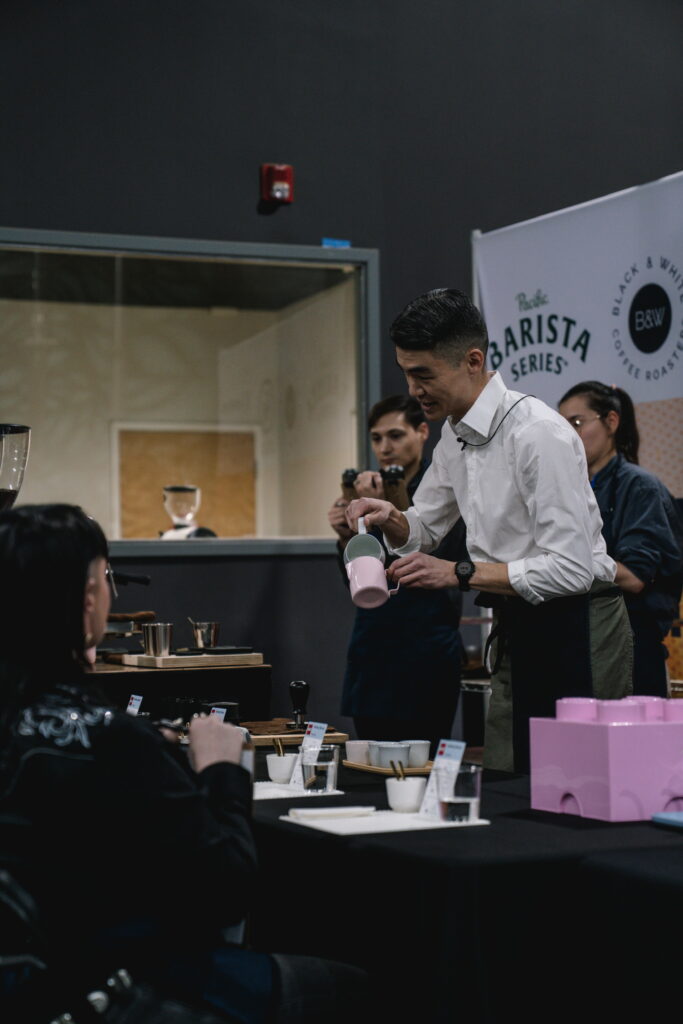
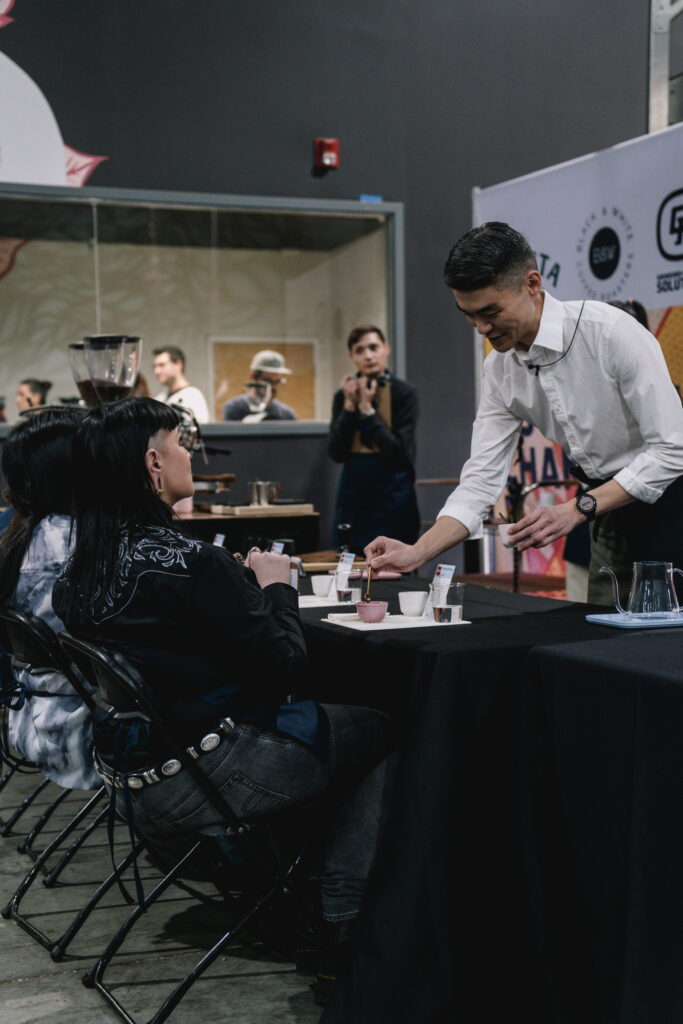
I got so much out of competing the first year because there was such an exponential rate of growth, right? I had so much to learn. But the other reason I stuck with competition is that I went into that first year not expecting anything. Plenty of people competed from Dune before, but it wasn’t like we were this powerhouse of a company where we’re sending competitors every year, and there’s this expectation that you do well. A lot of it was just up to me and how I chose to prepare.
Competition has become a question of, “How can I learn as much as possible? How can I better myself? How can I grow?” And the results just happen. I’ve always tried to detach those two things. In all the years of competing, I’ve never really thought, “Oh, if I just keep competing, I’ll win one day.”
There are years where I thought, “Oh, this could be a year where I could win.” And I’ve also thought, “I have no shot this year.” The more I can detach those results from what I’m getting out of competition, the more enjoyable the process is.
How did you approach preparing for competition?
My approach for this year was to prepare how I think a champion would prepare. Again, this was a way for me to detach myself from the results and put my best effort out there.
I had to consider everything I was doing. It was how I was washing dishes. It was how I welcomed people when they were guests for my presentation. It was how I dressed and my intonation—all these different things go into the presentation itself. It was making sure that the additional things, such as roasting, were being done in a meticulous way that I could trust was the best level I could put out.
The hope was that by doing all those things, I could mentally trust that I was doing the work I think a champion would be doing. Again, I was doing those things while not being the champion. But I said to myself that if I do all these things, I know that I’ve done my best, and I can’t really ask for more.
You’ve worked with the same core team [of trainers and coffee professionals]—Felix, Mal Preheim, and Gavy Oesmanto—for the last few years to prepare for competition. It seems like your team has uniquely melded together in a way that we may not see that often.
We had this funny conversation last year before the start of the 2025 season. We all agree that no matter how much we want to win or to do well, certain things are important to all of us, and I think that’s also why the team works so well together.
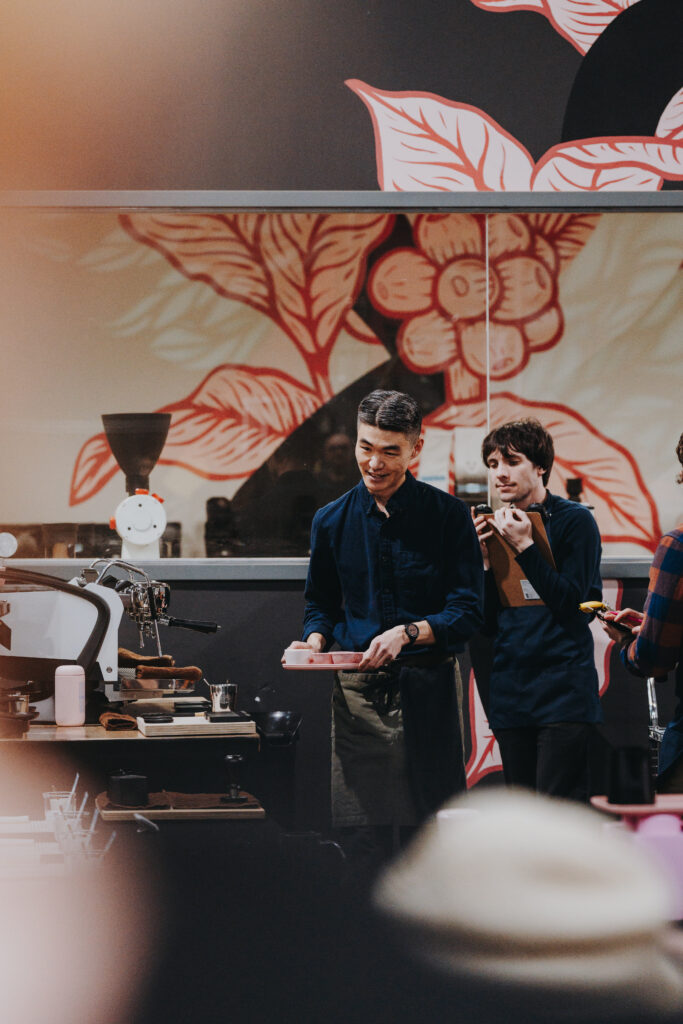
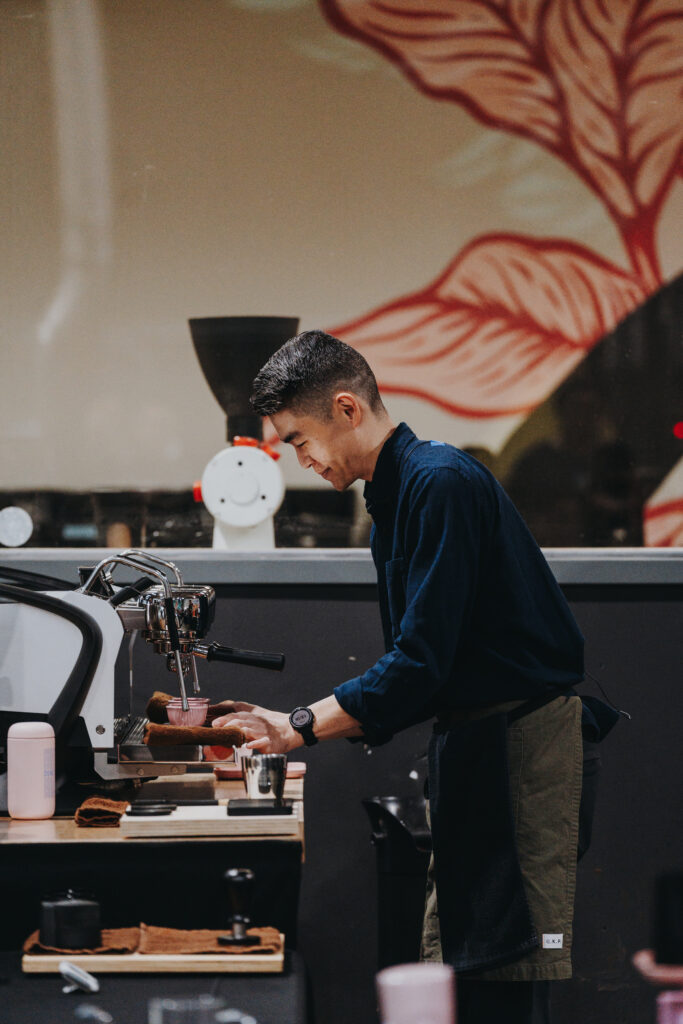
A big one is that we care about the people around us. Each of the four of us wants to support other people, especially if they’re newer competitors or maybe have less support. That’s something that we all feel very strongly about. And in some ways, it’s that empathy that helps the four of us work together.
Tell us a little bit more about the coffees you competed with.
I competed with two coffees. I don’t know if I would say this was a very difficult decision, but it was something we put a lot of thought into. Part of that was because we spent so much time thinking about what coffees were out there, different flavor profiles, and all the things we wanted to serve.
It was also difficult because we were tasting so many coffees compared to years past when we’d maybe taste coffee from one or two producers. [This year] I tasted probably 250 to 300 different coffees.
What themes did you want to highlight in your routine?
I remember hitting a wall about what I wanted to talk about. I was thinking about all these different things and doing a lot of reflection. One of the things that kept coming into my mind was the idea of creativity, and wanting or being able to share new things and do different things with the same raw materials.
It took me to this place of thinking about playing with LEGO when I was young. I look back fondly on being able to get a LEGO set, follow the instructions, build something—and then throw the instructions away, take all the pieces apart, build something new, and do the same thing over and over again. In that process, you are learning more about the LEGO [pieces] themselves, how they fit together, and what you can do with them.
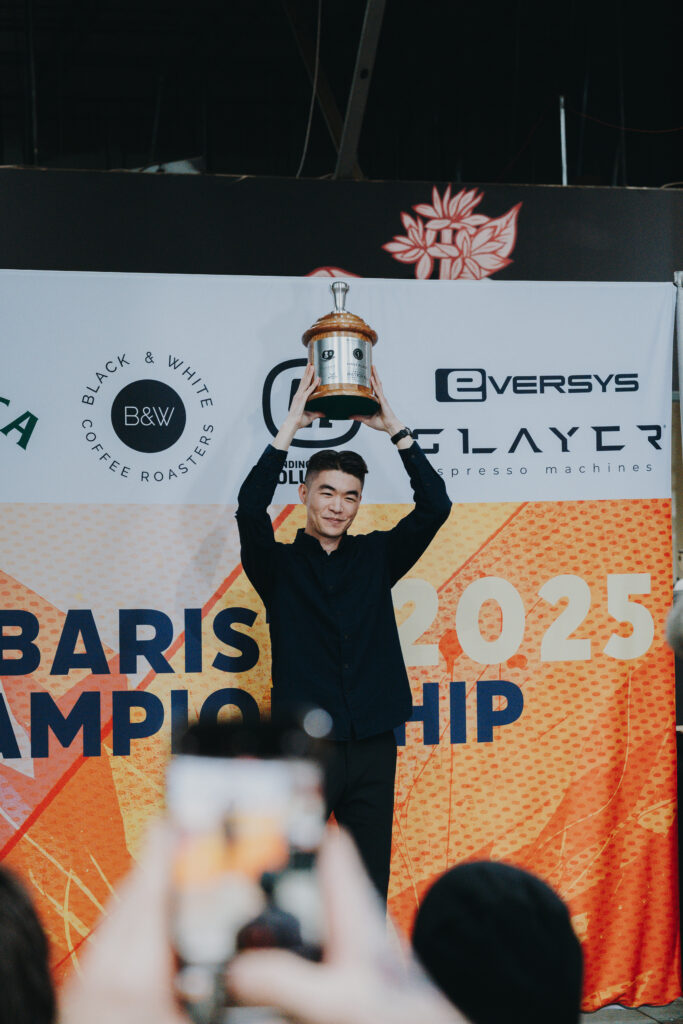
The idea stuck with me, and the LEGO framing helped me think about what I wanted to talk about. It took a little time to extrapolate that into a theme that wasn’t just about LEGO but was also universally applicable to something like coffee. From there, the presentation came together in a natural way.
What are you looking forward to in preparation for the World Barista Championships?
Continued reflection—and not just about how we want to prepare and how we want to train and do all the things that will get us to where we want to be to show up in Milan.
One big thought on my mind is, how do I, as the 2025 United States Barista Champion—what is it that I can do with this role in this moment in time that not only uplifts competition and the championship but in some way leaves the championship in a better place for the 2026 Barista Champion? Who can I speak to so that there’s more of an awareness of what competition is and greater respect for the work of the barista and the coffee industry?
Your parents have been in the audience for past competition seasons. Were they there this time around?
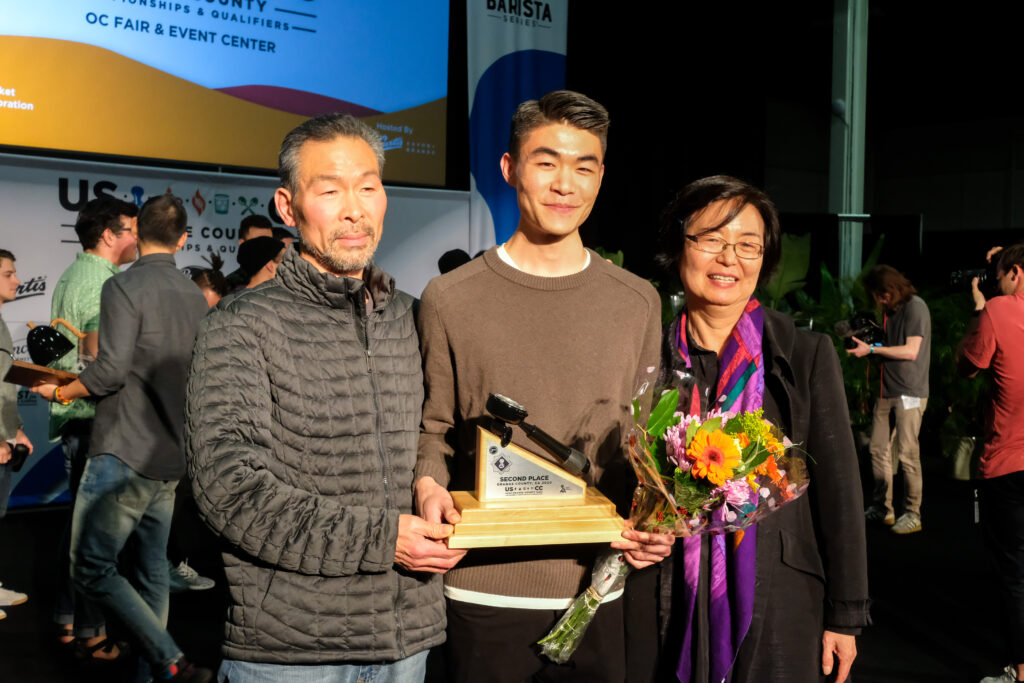
My mom was there. Both my parents were there in 2020 and 2024. Initially, my mom was going to fly out as a surprise, and then my partner and my mom were like, “Hey, this probably shouldn’t be a surprise on a big day.”
My mom is seeing competition in a different way, but seeing how many people have supported me throughout the process, I think that was meaningful for her. Not to see me raise the trophy—she doesn’t care about that sort of thing, but I think it was the recognition of the work that I’ve done, all the people around me, and how much other people also wanted me to win, was special for her to see.
This interview has been edited for length and clarity. Cover photo by Niki Weegens.
